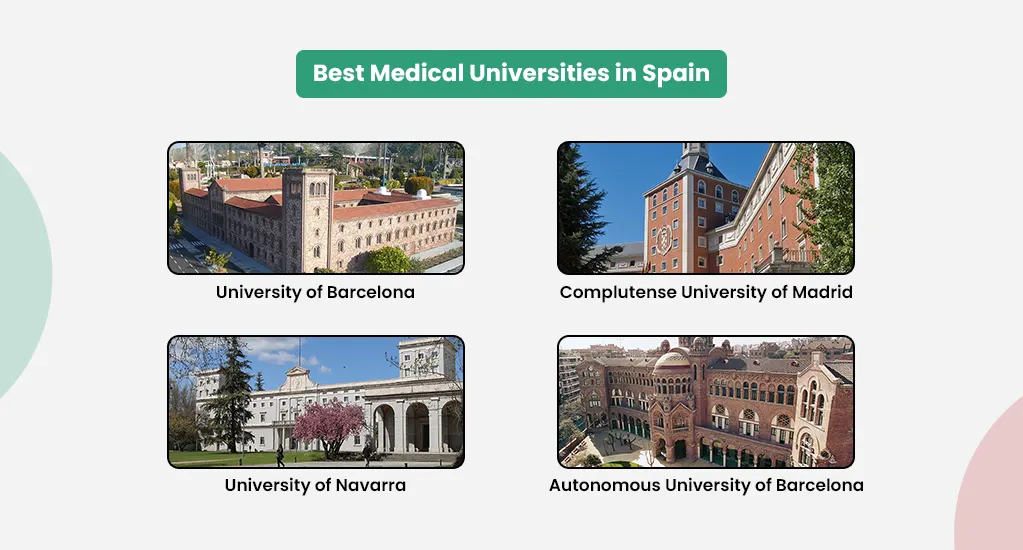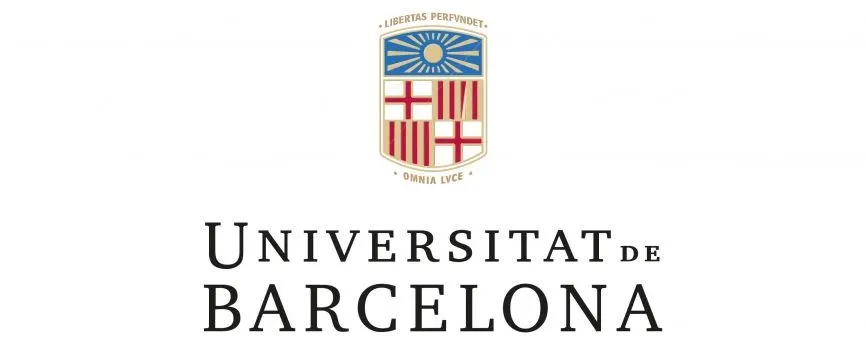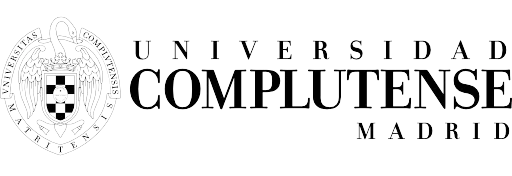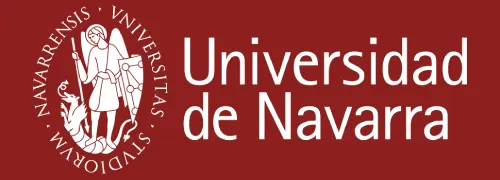
Are you interested in studying abroad? We’ll discuss why medical universities in Spain could be an excellent option for international students like you. Did you know that many students from India head to Spain to study? Yup, it’s true!
Despite Berlin’s beautiful sights, Spain has much more to offer. Their medical universities provide top-notch education, and living costs are more affordable than in places like the UK or the USA.
So, why choose Spain for your medical studies? Well, first off, who doesn’t love the Mediterranean climate? And let’s remember Spain’s first-rate healthcare services, rich culture, and stunning art and language. Spain’s got it all!
And we can’t overlook the welcoming environment – students often praise the friendliness and warmth of the people in cities like Bilbao, Salamanca, and Cordoba.
Now, let’s talk about Spain’s rich culture and heritage. You’ve probably heard of Hispanic culture and how they love to celebrate every occasion. Spain has everything from vibrant art to flamenco music, literature, and delicious cuisine.
One significant advantage of studying in Spain is the cost. Compared to the UK or USA, tuition fees are much lower, but the quality of education remains high. Plus, the cost of living is more affordable, too.
And here’s the cherry on top – Spanish medical universities are globally renowned and offer top-tier education. So, you’ll not only graduate from a well-known school, but you’ll also receive excellent teaching.
Best medical universities in Spain for international students
In Spain’s charming student towns, there are a bunch of medical universities in Spain where you could kickstart your medical journey. Here’s a list of the medical universities in Spain:

1. University of Barcelona

Founded in 1450, the University of Barcelona has multiple campuses. The tuition fee is almost the same for international students as for domestic ones. Because of this university’s emphasis on practical education, many generations of doctors have been trained here. Various undergraduate and postgraduate courses are offered here.
Read Article: What is A1 Level Spanish?
2. Complutense University of Madrid

The University of Madrid, established in 1971, is ranked #337 among global universities. This institution offers a diverse range of courses in health sciences, with ten different options available for students studying medicine. Additionally, students can pursue their master’s degrees here.
Read more: What is A2 Level Spanish?
3. University of Navarra

The University of Navarra has been ranked #244 in clinical medicine. Located in a unique environment, this university tries to impart education through a globalized vision through various specialized courses.
Related article: What is the B1 Level of Spanish?
4. Autonomous University of Barcelona

Established in 1968, this public institute, also known as UAB, emphasizes a practical approach to education coupled with high-quality teaching and a well-structured study plan. Students can live near campus at Vila Universitària apartments, which accommodate over 2000+ residents. Additionally, the institute prioritizes practical communication skills, an asset for students pursuing careers in this field.
Similar Read: What is B2 Level Spanish?
Documents required to study medicine in Spain by international students
For international students aspiring to study medicine in Spain, several documents are required to complete the application process:
- Letter of acceptance: A formal letter from the chosen university confirming admission to the medical program.
- Health insurance: Proof of valid health insurance coverage for the study period in Spain.
- Proof of financial stability: Documentation demonstrating sufficient financial resources to cover tuition fees, living expenses, and other related costs during the stay in Spain.
- Completed visa application form(s): To obtain a student visa, it’s important to fill out the appropriate application form(s) accurately and submit it along with other required documents.
- Valid passport: A passport valid for the intended stay in Spain, with a validity period of at least six months beyond the planned departure date.
- NEET report card: For Indian students, the NEET (National Eligibility cum Entrance Test) report card is often required as part of the application process for medical studies abroad.
Ensuring that all necessary documents are prepared and submitted correctly is essential for a smooth application process and successful enrollment in a medical program in Spain.
How Long Does It Take to Study Medicine in Spain?
Studying medicine in Spain typically takes six years. The journey begins with a two—to three-year foundation course focusing on fundamental concepts in medicine.
During this pre-clinical phase, students delve into subjects such as body structure, biology, statistics, genetics, and biochemistry and gain insights into the psychology and ethics of medicine.
Lectures on surgery, orthopedics, and traumatology are conducted toward the end of this pre-clinical stage. After completing these foundational studies, students’ progress into the clinical phase, engaging in hands-on clinical training and rotations in various medical specialties.
After completing all 12 semesters of study, students graduate from university with the title “grado en medicina” (degree in medicine). While the terminology differs, this qualification is comparable in structure and outcome to programs like the AUAmed MD program, which also emphasize strong clinical training and global medical standards.
Interesting Article: Best Online Spanish Classes for Kids in 2024
How Much Does Study Medicine Cost in Spain?
When considering financing your medical studies in Spain, it’s crucial to weigh the costs involved. In Spain, the expenses vary between public and private universities. Public medical universities in Spain typically charge EU/EEA students tuition fees ranging from €2,800 to €3,600 per year, while private universities can cost up to €25,000 per year.
The cost of living in Spain depends on location, lifestyle, and individual needs. On average, monthly student rental fees range from €300 to €600 for a room in a shared flat or a small apartment.
Additionally, budgeting around €200 for food and hygiene expenses is recommended. When factoring in transportation, study materials, and leisure activities, your monthly payments could total between €700 and €1,200.
Fortunately, various scholarships are available to support students pursuing medical studies abroad. Organizations like Future Doctor offer guidance and advice on scholarship opportunities. You can also explore places where you can find Caribbean medical schools to compare costs and opportunities for international students.
Read more: Learning Spanish for Beginners
Conclusion
In this article, we’ve discussed why studying at medical universities in Spain is an excellent choice for students from other countries. But here’s the thing: to enjoy learning in Spain, you need to speak Spanish well. That’s where Kochiva can help.
Kochiva offers online Spanish language courses. We’ve got expert teachers and fun ways to make you learn. We’ll get you to speak Spanish like a pro in no time. Whether aiming for medical studies in Spain or learning a new language, Kochiva has everything you need to succeed.
So, if you’re ready to improve your Spanish skills, visit our website at https://kochiva.com/ and start your language-learning journey today!
Also, Kochiva will help you prepare for the DELE Exam for the Spanish Language course.
Similar Article: How long does it take to learn Spanish Language?
Frequently Asked Questions:
Is NEET required for international students to study medicine in Spain?
Yes, a student has got to clear their NEET (National Eligibility cum Entrance Test) exam if they wish to study medicine in Spain.
Is a medicine course in Spain worth it?
Besides the high-quality, practical education, the fee is less than in other countries abroad, making it a good choice for Indians.
What do I need to study medicine in Spain?
You’ll need to meet specific requirements, such as having a high school diploma and passing an entrance exam. You’ll also need to show that you can speak Spanish or English.
Read More:
Spanish Courses in Spain: Choose Best Institute to Learn Spanish!






Are you interested in studying abroad? We’ll discuss why medical universities in Spain could be an excellent option for international students like you. Did you know that many students from India head to Spain to study? Yup, it’s true!
Despite Berlin’s beautiful sights, Spain has much more to offer. Their medical universities provide top-notch education, and living costs are more affordable than in places like the UK or the USA.
So, why choose Spain for your medical studies? Well, first off, who doesn’t love the Mediterranean climate? And let’s remember Spain’s first-rate healthcare services, rich culture, and stunning art and language. Spain’s got it all!
And we can’t overlook the welcoming environment – students often praise the friendliness and warmth of the people in cities like Bilbao, Salamanca, and Cordoba.
Now, let’s talk about Spain’s rich culture and heritage. You’ve probably heard of Hispanic culture and how they love to celebrate every occasion. Spain has everything from vibrant art to flamenco music, literature, and delicious cuisine.
One significant advantage of studying in Spain is the cost. Compared to the UK or USA, tuition fees are much lower, but the quality of education remains high. Plus, the cost of living is more affordable, too.
And here’s the cherry on top – Spanish medical universities are globally renowned and offer top-tier education. So, you’ll not only graduate from a well-known school, but you’ll also receive excellent teaching.
Best medical universities in Spain for international students
In Spain’s charming student towns, there are a bunch of medical universities in Spain where you could kickstart your medical journey. Here’s a list of the medical universities in Spain:
1. University of Barcelona
Founded in 1450, the University of Barcelona has multiple campuses. The tuition fee is almost the same for international students as for domestic ones. Because of this university’s emphasis on practical education, many generations of doctors have been trained here. Various undergraduate and postgraduate courses are offered here.
Read Article: What is A1 Level Spanish?
2. Complutense University of Madrid
The University of Madrid, established in 1971, is ranked #337 among global universities. This institution offers a diverse range of courses in health sciences, with ten different options available for students studying medicine. Additionally, students can pursue their master’s degrees here.
Read more: What is A2 Level Spanish?
3. University of Navarra
The University of Navarra has been ranked #244 in clinical medicine. Located in a unique environment, this university tries to impart education through a globalized vision through various specialized courses.
Related article: What is the B1 Level of Spanish?
4. Autonomous University of Barcelona
Established in 1968, this public institute, also known as UAB, emphasizes a practical approach to education coupled with high-quality teaching and a well-structured study plan. Students can live near campus at Vila Universitària apartments, which accommodate over 2000+ residents. Additionally, the institute prioritizes practical communication skills, an asset for students pursuing careers in this field.
Similar Read: What is B2 Level Spanish?
Documents required to study medicine in Spain by international students
For international students aspiring to study medicine in Spain, several documents are required to complete the application process:
Ensuring that all necessary documents are prepared and submitted correctly is essential for a smooth application process and successful enrollment in a medical program in Spain.
How Long Does It Take to Study Medicine in Spain?
Studying medicine in Spain typically takes six years. The journey begins with a two—to three-year foundation course focusing on fundamental concepts in medicine.
During this pre-clinical phase, students delve into subjects such as body structure, biology, statistics, genetics, and biochemistry and gain insights into the psychology and ethics of medicine.
Lectures on surgery, orthopedics, and traumatology are conducted toward the end of this pre-clinical stage. After completing these foundational studies, students’ progress into the clinical phase, engaging in hands-on clinical training and rotations in various medical specialties.
After completing all 12 semesters of study, students graduate from university with the title “grado en medicina” (degree in medicine). While the terminology differs, this qualification is comparable in structure and outcome to programs like the AUAmed MD program, which also emphasize strong clinical training and global medical standards.
Interesting Article: Best Online Spanish Classes for Kids in 2024
How Much Does Study Medicine Cost in Spain?
When considering financing your medical studies in Spain, it’s crucial to weigh the costs involved. In Spain, the expenses vary between public and private universities. Public medical universities in Spain typically charge EU/EEA students tuition fees ranging from €2,800 to €3,600 per year, while private universities can cost up to €25,000 per year.
The cost of living in Spain depends on location, lifestyle, and individual needs. On average, monthly student rental fees range from €300 to €600 for a room in a shared flat or a small apartment.
Additionally, budgeting around €200 for food and hygiene expenses is recommended. When factoring in transportation, study materials, and leisure activities, your monthly payments could total between €700 and €1,200.
Fortunately, various scholarships are available to support students pursuing medical studies abroad. Organizations like Future Doctor offer guidance and advice on scholarship opportunities. You can also explore places where you can find Caribbean medical schools to compare costs and opportunities for international students.
Read more: Learning Spanish for Beginners
Conclusion
In this article, we’ve discussed why studying at medical universities in Spain is an excellent choice for students from other countries. But here’s the thing: to enjoy learning in Spain, you need to speak Spanish well. That’s where Kochiva can help.
Kochiva offers online Spanish language courses. We’ve got expert teachers and fun ways to make you learn. We’ll get you to speak Spanish like a pro in no time. Whether aiming for medical studies in Spain or learning a new language, Kochiva has everything you need to succeed.
So, if you’re ready to improve your Spanish skills, visit our website at https://kochiva.com/ and start your language-learning journey today!
Also, Kochiva will help you prepare for the DELE Exam for the Spanish Language course.
Similar Article: How long does it take to learn Spanish Language?
Frequently Asked Questions:
Is NEET required for international students to study medicine in Spain?
Yes, a student has got to clear their NEET (National Eligibility cum Entrance Test) exam if they wish to study medicine in Spain.
Is a medicine course in Spain worth it?
Besides the high-quality, practical education, the fee is less than in other countries abroad, making it a good choice for Indians.
What do I need to study medicine in Spain?
You’ll need to meet specific requirements, such as having a high school diploma and passing an entrance exam. You’ll also need to show that you can speak Spanish or English.
Read More:
Spanish Courses in Spain: Choose Best Institute to Learn Spanish!
Best Online Spanish Classes in India
Best Online German Classes in India
Best Online French Classes in India
Hire Cryptocurrency Experts: Vetted Blockchain Professionals for Agile Teams in 2026
How Web Developers are Staying Relevant in the Age of AI
How Study Abroad Students Can Use Tech Upskilling to Build Global Careers
Request a Call Back
Related Posts
Hire Cryptocurrency Experts: Vetted Blockchain Professionals for Agile Teams in 2026
Read MoreAs blockchain technology continues to reshape business operations in 2026, access to specialized crypto professionals has become increasingly critical for organizations. The challenge isn’t finding just anyone with blockchain experience—it’s securing verified experts who can deliver immediate value. Why Businesses Need Crypto Professionals in 2026 The digital asset landscape has evolved dramatically, creating urgent demand […]
How Web Developers are Staying Relevant in the Age of AI
Read MoreArtificial intelligence (AI) has significantly changed the web development world very quickly. Initially, when AI was starting to take over our daily lives, you may have felt worried about your future in this field. You may have wondered if machines will eventually take over your work. That feeling is completely normal. Stanford’s 2025 AI Index […]
How Study Abroad Students Can Use Tech Upskilling to Build Global Careers
Read MoreStudying abroad changes you. You learn to live independently. You adjust to new cultures. You build confidence. But when it comes to jobs, experience and skills matter more than location. If you want a global career, you need more than a degree. You need skills that employers value everywhere. Right now, tech skills sit at […]
French Classes Markham to Build Fluency in 2026
Read MoreFor many of us in Markham, learning French doesn’t begin with a big decision. It usually starts quietly. A meeting where we wish we could follow along more easily. A role that suddenly lists bilingual skills. Or simply that moment when we realize we’re holding back when we speak. Somewhere in that space, the idea […]
French Classes Kitchener to Build Fluency in 2026
Read MoreFor many of us in Kitchener, learning French doesn’t arrive as a bold decision. It shows up quietly. A job listing mentions bilingual skills. A conversation stalls because we can’t find the right words. Or we simply feel that speaking another language shouldn’t feel this distant. Somewhere in those moments, the idea of French Classes […]
Meet Our Conversion Expert